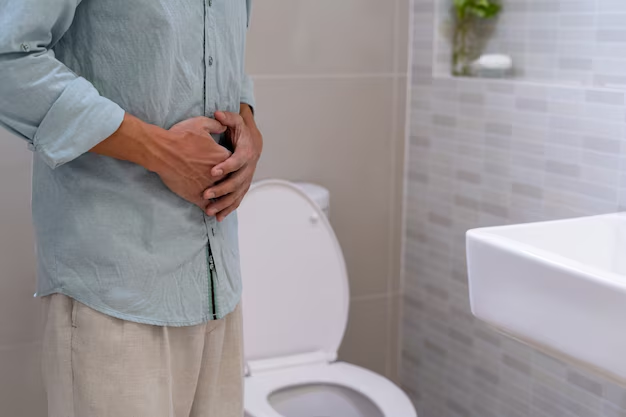Your Guide to What Causes Fecal Incontinence
What You Get:
Free Guide
Free, helpful information about Incontinence FAQ and related What Causes Fecal Incontinence topics.
Helpful Information
Get clear and easy-to-understand details about What Causes Fecal Incontinence topics and resources.
Personalized Offers
Answer a few optional questions to receive offers or information related to Incontinence FAQ. The survey is optional and not required to access your free guide.
Understanding the Causes of Fecal Incontinence: What You Need to Know
Fecal incontinence, the inability to control bowel movements, is a topic often shrouded in discomfort and embarrassment. However, understanding its causes can lead to better management and improved quality of life for those affected. Let's delve into the various factors contributing to this condition, its underlying mechanisms, and what options are available to support those in need.
What Causes Fecal Incontinence?
Fecal incontinence can stem from numerous physical and neurological factors:
- Muscle Damage: Injury to the anal sphincter muscles, often due to childbirth, surgery, or trauma, can lead to weakness in the area, resulting in incontinence.
- Nerve Damage: Conditions such as diabetes, multiple sclerosis, or spinal cord injuries can impair the nerves that control bowel function.
- Chronic Diarrhea or Constipation: Both diarrhea and severe constipation can contribute to incontinence by weakening or damaging the rectal muscles and nerves.
- Rectal Prolapse: This occurs when part of the rectum protrudes out of the anus, potentially affecting bowel control.
- Aging: As we age, the muscles and nerves around the anus naturally weaken, increasing the risk of incontinence.
- Pelvic Floor Dysfunction: Weakness or dysfunction in the muscles supporting the bowel can also lead to uncontrolled bowel movements.
Understanding these underlying causes can help individuals seek appropriate medical attention and strategies to mitigate symptoms.
Seeking Solutions: Beyond Medical Interventions
While medical treatments and lifestyle adjustments play a critical role, there may be situations where additional support is necessary. Here are some resources and tools to consider:
- Government and Community Programs: Many health departments offer programs to assist individuals with chronic conditions, including support for medical consultations and treatments.
- Financial Assistance Options: Out-of-pocket expenses for medical appointments or treatments can be daunting. Look into financial assistance programs designed for healthcare needs.
- Educational Grants: Sometimes understanding more about a condition helps manage it better. Grants and scholarships for educational programs in healthcare might provide additional insight and knowledge.
- Workplace Accommodations: For those employed, discussing possible accommodations with employers can provide the necessary support to manage symptoms effectively while maintaining job responsibilities.
Empowering Your Well-being
Living with fecal incontinence may be challenging, but recognizing available resources and assistance can provide much-needed relief. Here is a selection of programs and solutions that might offer financial support or enhance your knowledge and skills:
- 💰 Medicaid/Medicare: Federal health coverage programs offering support for medical appointments and treatment.
- 😷 Local Health Departments: Seek information and assistance through community health initiatives.
- 📚 Healthcare Education Grants: Opportunities to receive funding for courses that specialize in understanding and managing chronic conditions.
- 🏢 Employer Assistance Programs: Many workplaces offer programs to help employees manage health-related challenges.
By exploring these opportunities, individuals facing fecal incontinence can find new ways to manage their condition and regain control over their personal and financial well-being.
What You Get:
Free Incontinence FAQ Guide
Free, helpful information about What Causes Fecal Incontinence and related resources.

Helpful Information
Get clear, easy-to-understand details about What Causes Fecal Incontinence topics.

Optional Personalized Offers
Answer a few optional questions to see offers or information related to Incontinence FAQ. Participation is not required to get your free guide.


Discover More
- a Patient You Are Caring For Uses Incontinence Briefs
- Are Incontinence Products Tax Deductible
- Are Incontinence Supplies Covered By Medicare
- Are Incontinence Supplies Tax Deductible
- Can a Bladder Infection Cause Urinary Incontinence
- Can a Kidney Stone Cause Incontinence
- Can a Urinary Tract Infection Cause Incontinence
- Can a Uti Cause Incontinence
- Can Constipation Cause Incontinence
- Can Constipation Cause Urinary Incontinence
